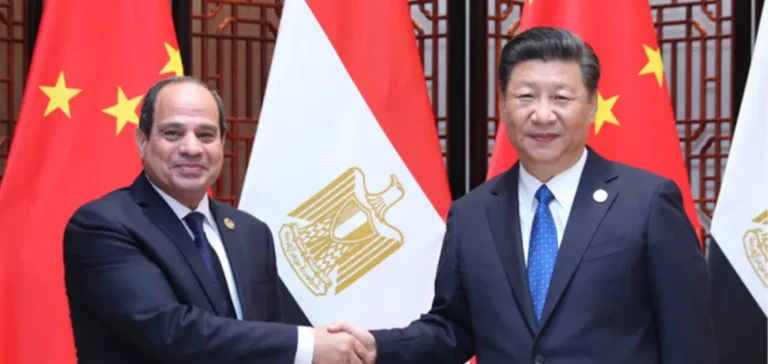Egypt’s Minister of Electricity and Renewable Energy, Mahmoud Esmat, met with representatives of six major Chinese companies to discuss new cooperation opportunities in the energy sector. These meetings took place on the sidelines of the international summit on energy solutions in Shanghai, focused on renewable energy and the energy transition. The companies involved are Envision Group, Windey, LONGi, China Energy, PowerChina, and ToNGWEI, which are among the leading players in the energy sector in the People’s Republic of China.
Industrial partnerships and national objectives
The discussions focused on aligning future partnerships with Egypt’s national objectives for technology transfer and local industrial development. The ministry reaffirmed its strategy to increase the share of local components in solar and wind projects as well as in the production of energy storage batteries. The Chinese companies presented several industrial projects, including the manufacturing of solar cells, monocrystalline silicon, wind turbines, and electrical components for the national grid.
Mahmoud Esmat outlined the government’s plan to create an investment-friendly environment for the private sector, promoting the reconstruction of infrastructure and modernising the legislative environment. He also clarified that the programme includes guarantees for investors and workforce training. This strategy is designed to attract both local and foreign capital to support the growth of Egypt’s energy sector.
Expansion of capacity and energy diversification
The ministry highlighted its intention to expand electricity production capacity from renewable sources, including new solar and wind projects. Talks with the Chinese companies also covered the diversification of electricity production sources and the country’s energy mix. The stated goal is to consolidate energy independence and strengthen Egypt’s industrial competitiveness in the energy sector.
Among the projects discussed, the companies emphasised solutions to increase the share of local components in electricity grids, both for production and for transmission and distribution. Local industry development remains a priority, with particular attention paid to the localisation of value chains and the creation of specialised jobs.
Technological projects and industrial impact
According to a ministry statement reported by Arab Finance on June 30, Chinese and Egyptian officials exchanged views on industrial opportunities covering the manufacturing of storage batteries, photovoltaic modules, turbines, and electrical equipment for the regional market. The intention to strengthen bilateral cooperation comes in a context of rising investments in the renewable energy sector in Egypt.
A ministry spokesperson stated that these meetings are part of the approach to “localise industry and transfer technology to Egypt.” The development of the local industrial sector around energy aims to support the export of technologies and components manufactured on national territory, in response to growing demand in regional markets.
Arab Finance reported on June 30 that discussions at the Shanghai summit also highlighted the importance of strengthening infrastructure and upgrading skills in technical fields linked to energy. The Chinese companies expressed their willingness to support Egypt’s industrial ambitions in renewable energy.






















